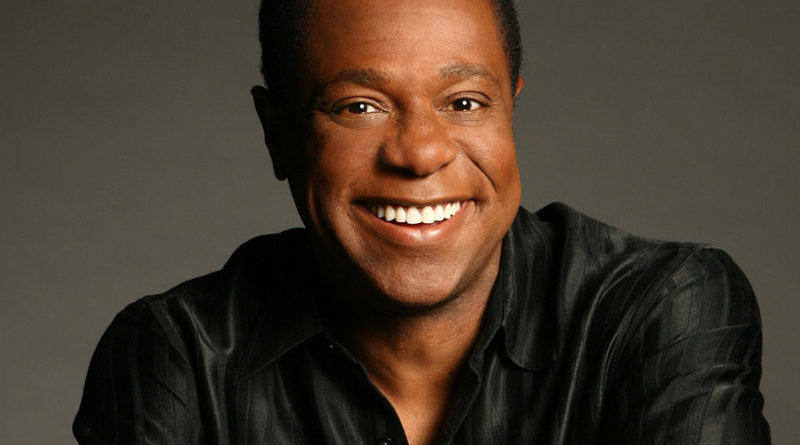“Not a Genuine Black Man” is not your average show
What’s it like for a black family to live in an all-white city? That’s what writer/actor Brian Copeland shares in “Not a Genuine Black Man,” his one-man play that he performed at the Center for the Arts on Feb. 16.
“I like white women, that’s black. Cops think I’m black. ‘Not a genuine black man,’ what the hell does that mean? Because if you think about it, throughout the course of American history, it is the racists that determine what the racial categories are,” Copeland said as he explains the reason for the title of the play.
Copeland does a brilliant job showcasing the life of a young black man growing up in the Bay Area, specifically in San Leandro. He incorporates some of his childhood stories and experiences and beautifully plays the role of every character in much detail.
Copeland starts the show off by describing his life in Hayward with his family: his mother, grandma, little sister, and father.
Copeland illustrates a scene where he is sitting with his grandma, mother, and sister at the dinner table, playing a game of rummy. When his little sister, Tracy exclaims, “Mommy, I don’t got no wild card!” his mother calmly and elegantly responds with, “No Tracy, I don’t have any wild cards. ‘I don’t got no’ is a double negative, which cancels itself out, so that you mean, you do have wild cards.”
Unable to withstand any more of the physical and emotional abuse that his family went through because of his father, his mother decided to move to San Leandro, a city where the population was 99 percent white at the time, when Copeland was around eight years old.
“Don’t be silent about domestic violence in your home. Tell somebody what’s going on. That can be a teacher, a counselor or a friend,” said Copeland.
Throughout the play, Copeland describes the amount of racism, discrimination, and hate they had to encounter as a black family.
Copeland describes one such incident where at the time they just moved into their new home and his mother suggested that he go out and make new friends. The moment he walks out of his home, a few white kids encounter him and tease him by making comments like, “go back to Oakland” and calling him the n-word, which left a lasting scar on his heart.
He escapes from them and runs into a cop who then treats him like a criminal and takes him to his house. The cop reports to his mother that Copeland had been running around the neighborhood causing harm. The eight-year-old child looked at him, confused and heartbroken. Such incidents like those shaped the way Copeland viewed the world. They were treated with less respect than white people, but his mom did everything and anything just to earn the same level of respect that people had for the whites.
Through this play, Copeland hopes to communicate to the audience the idea of equality and acceptance and show what life was like for black people back then, and even now.
“After years of straight standup, I wanted to do something with more ‘weight’ than just jokes. I got the advice to ‘find the piece of ground that you alone stand in and write from there.’ Shortly after, I got the anonymous letter proclaiming that I wasn’t ‘a genuine black man,’” said Copeland.
“Nobody has the right to define you but you,” he finished.

